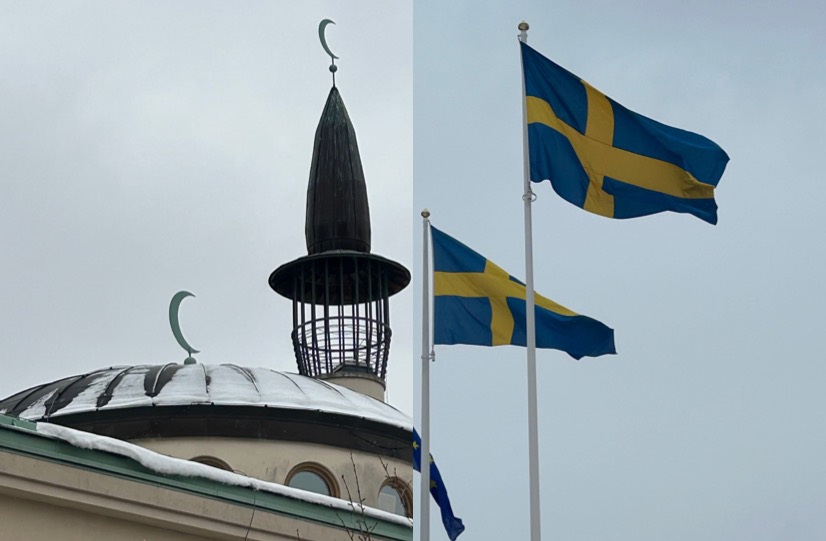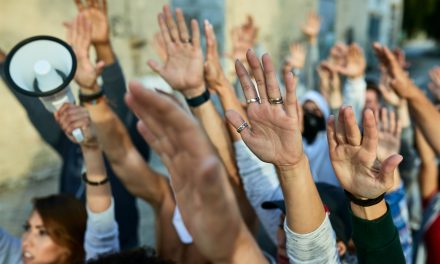The ascent of Jimmie Åkesson’s party challenges the very essence of Swedish core values, unraveling a societal shift that confronts the longstanding ideals of the country
“Yes, what Jimmie Åkesson and his party members are saying about tearing down mosques is indeed very scary. Apparently, they do not fit in his Swedish world. Maybe he wants a Sweden where everyone is called Josefine and Sven and those who are named Mohammed and Fatima are not welcome here anymore”.
It is mid-December in Stockholm, the capital city of Sweden. Stockholm’s Central Mosque lies in the Södermalm neighborhood: the heart of the city, with a flourishing scene of typical Swedish shops and coffee places for a fika. It is the Friday prayer after noon. Standing outside the mosque is Ali*, who has just finished his prayer. Ali lives in a country where the far-right, populist, and anti-immigration party Sweden Democrats has made a shocking rise: one in every five Swedes crossed the Sweden Democrats on their ballot paper during the 2022 Swedish Parliament elections. How did it get to this point?
Sweden’s national identity has always been expressed as open and tolerant, and strongly associated with core values such as human rights, development, and peace. From a historical perspective, right-wing parties have never been able to establish substantial support and following in this part of Scandinavia. However, this changed radically in the past decade. The Sweden Democrats, which has its roots in the neo-Nazi movement, has gained a fourfold in the Swedish vote share in a mere decade and just four electoral cycles: from a 5,7% vote share in 2010 to a formidable 20,5% in 2022, securing its position as Sweden’s second-largest political party.
Even though the Social Democrats remained the largest party following the latest electoral cycle, the ruling coalition in the Swedish Parliament is made up of the Moderates, Christian Democrats, and Liberals and makes up of only 103 in the 349-seat Parliament. The coalition is only able to survive today due to the external support of the Sweden Democrats, which holds 73 seats in the Parliament, thus forming a majority coalition. Due to its extreme right-wing views, the Moderates and Christian Democrats did not want the Sweden Democrats to be directly included in the coalition.
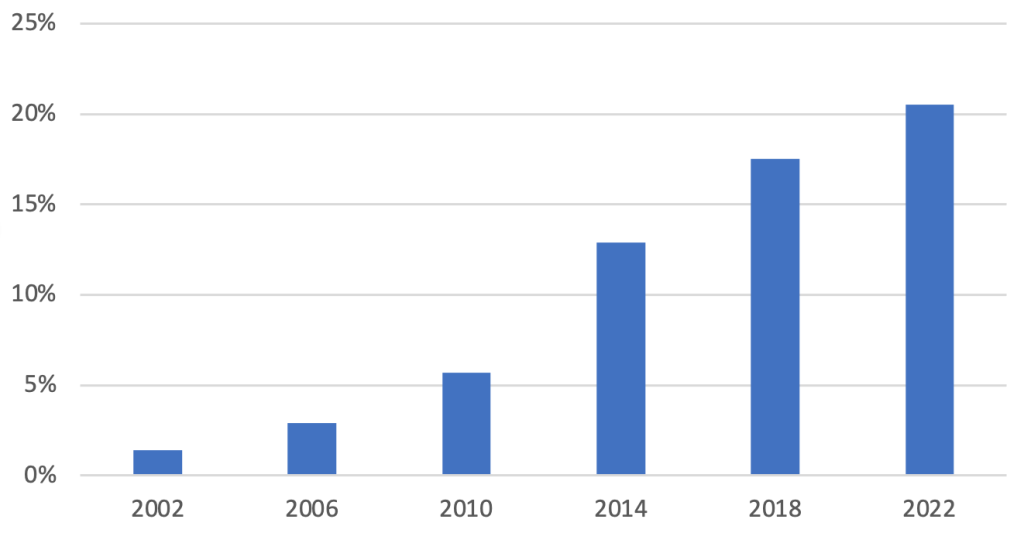
Sweden Democrats’ vote share in the Swedish Parliament Elections. Source: Statistics Sweden
Being able to actively govern has boosted the Sweden Democrats’ steps towards the normalization of the party. However, efforts to ‘detoxify’ its image have not always proven to be successful. Over the years, several party members were either removed or quit the party on one’s own initiative following controversy over outings on particular the Muslim population of Sweden and immigration. The Swedish national public broadcaster SVT reported that Jimmie Åkesson, who has served as the party leader since 2005, even found himself in hot water in late November 2023, after declaring that “we also need to start confiscating and demolishing mosque buildings where anti-democratic, anti-Swedish, homophobic and antisemitic propaganda or general disinformation about Swedish society is spreading.” And this negative rhetoric has been rising over the years. In 2009, only 9% of Swedes believed that immigration was the major political issue facing their country; this raised to a mere 53% in 2015, following the European refugee crisis and the influx of 160.000 immigrants. It has become clear that Sweden, like all European liberal democracies, and despite its reputation as a moral force in global politics, could no longer be immune to racism, populism, and Islamophobia.
“It’s all about immigration, all about Islam”
The rise and success of the Sweden Democrats have made it clear how immigration issues have been successfully politicized in Sweden. As immigration became a more prominent issue in Swedish politics, the Sweden Democrats successfully mobilized Swedes with xenophobic views for whom immigration was a major concern and had traditionally voted for other political parties. In an interview on the current political landscape in Sweden, Karl Loxbo, senior lecturer and associate professor at the Political Science department of Stockholm University explained how the Sweden Democrats have tightened their grip on Swedish politics. The party now has a large influence on Sweden’s immigration policy, with the number of immigrants entering Sweden going from the highest to the lowest in Europe. “The Sweden Democrats have placed the government’s attention on Muslim immigrants in particular. Only a few days ago, the party leader of the Sweden Democrats, Jimmie Åkesson, argued that all mosques in Sweden should be torn down (referring to Åkesson’s November 27, 2023 speech, red.). This caused a huge shock in Sweden, as this type of rhetoric had never been heard before. It’s all about immigration, all about Islam.”
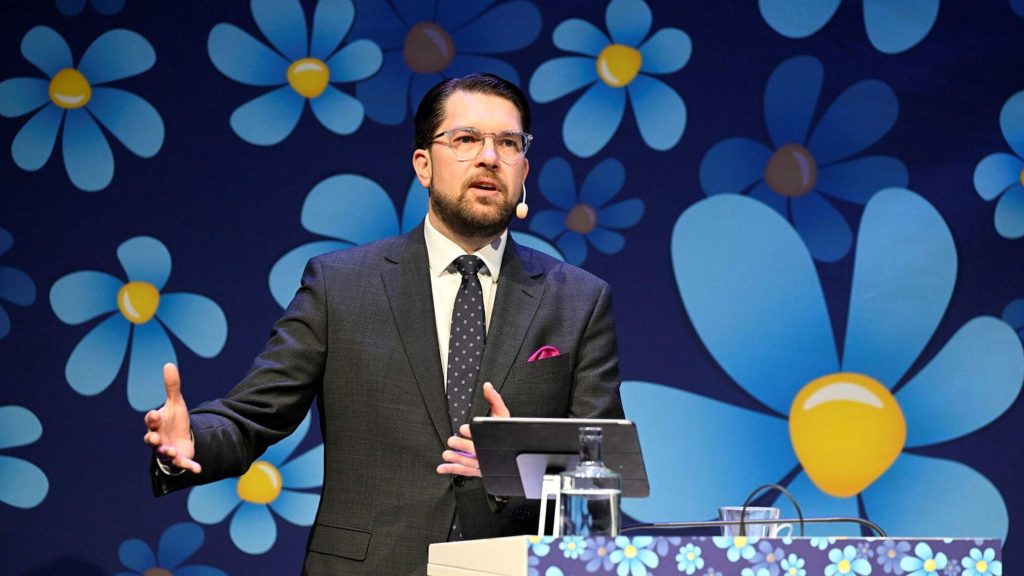
Jimmie Åkesson, Sweden Democrats’ party leader, giving his infamous anti-Muslimism speech in November, 2023. Photo credit: Jessica Gow/TT Nyhetsbyrån
In 2023, the first full year of the Sweden Democrats governing in Sweden, the country has been rocked by Islamophobic demonstrations and desecrations and burnings of the Quran in particular. The New York Times reported that these occasions caused riots in the Middle East, as well as diplomatic crises “and placed the country, long regarded as peaceful and tolerant, under an awkward international spotlight”. In the summer of 2023, several burnings of the Quran took place in Stockholm outside the Parliament, Iraqi Embassy, and Central Mosque, the latter perpetrated by an Iraqi-Assyrian refugee. Following the Quran burnings, Sweden’s prime minister Ulf Kristersson raised Sweden’s terrorist threat level from level three to level four on a five-point scale, indicating a ‘high’ threat. Furthermore, the prime minister said he would examine if these burnings were enough reason to change Sweden’s Public Order Act and make it possible for police to put a halt to desecrations of the Quran. However, any potential changes to the Public Order Act or passing new laws that would make these burnings illegal are highly unlikely to pass due to the dependence of the Sweden Democrats for the coalition. Moreover, freedom of expression lies in the heart and is strongly protected in the Swedish constitution, with the country abolishing its blasphemy laws in the 1970s. However, a survey conducted by Kantar Public showed that a majority of the Swedish population would support a ban on the burning of any religious text, including the Quran.
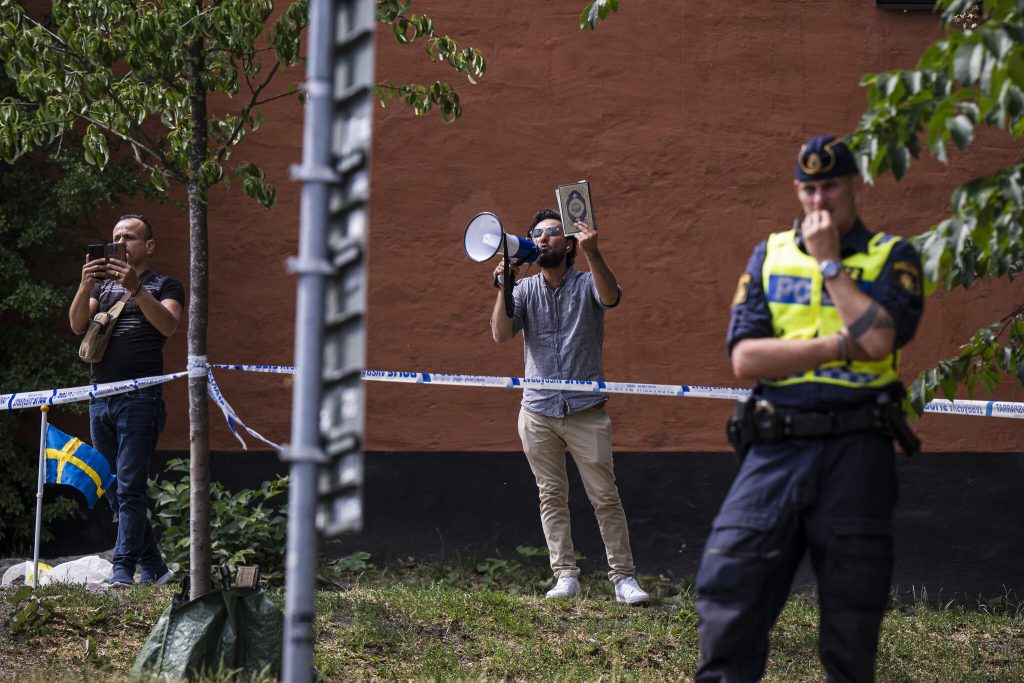
A protestor burns a Quran outside a mosque in Stockholm, June 2023. Photo credit: Jonathan Nackstrand/AFP
According to the Overseas Development Institute, 19,7% of Sweden’s population was foreign-born in 2020, which is significantly higher than the European Union average of 12,2%. This translates to roughly two million people in Sweden who were not born within the country’s borders. Moreover, globally, Sweden is home to the ninth-largest proportion of refugees per capita. The Muslim population of Sweden is estimated at between 250.000 and 400.000, with about half of this population being concentrated in Stockholm, according to statistics by the Open Society Institute of the EU Monitoring and Advocacy Program. How have Muslim Swedes experienced this political shift to the right throughout 2023?
Back to Ali* at the Central Mosque of Stockholm. He goes on to explain his feelings about the rising anti-immigration sentiment and Quran burning in Stockholm. “The last elections have officially uncovered what everyone maybe already knew inside: that people do not want us here anymore. The mosque was defaced a couple of times. And then, of course, there are the guys who burned the Quran and even used it as a ball to play soccer. It definitely makes you feel scared.”
“You ask yourself, how did this happen?”
Another Swede with an immigration background, Elif*, who works as a tattoo artist in central Stockholm, shed her light on the current political situation in Sweden. “Sweden has decided to shift away from its humanitarian side. There is now a very strong ‘we versus them’ rhetoric that is continually being spread by the Sweden Democrats and that is now echoed by a large part of the population. The Sweden Democrats have been saying very racist things for like 20 years now, so that is not necessarily a new thing. We always knew they were around, and we knew there were people that supported those racist sayings. But what we have not seen before is that the Social Democrats are now copying their language. You ask yourself, how did this happen?”
Talking to both Ali and Elif, it has become clear that fears around the rising Islamophobic sentiment are vivid. How do they stay optimistic in times like these? Ali says “there are a lot of people who support me and my family and say: you are no different than us. That gives me a lot of strength”, with Elif adding that “we are Swedes and we are a strong, tolerant and open society. This too shall pass.”
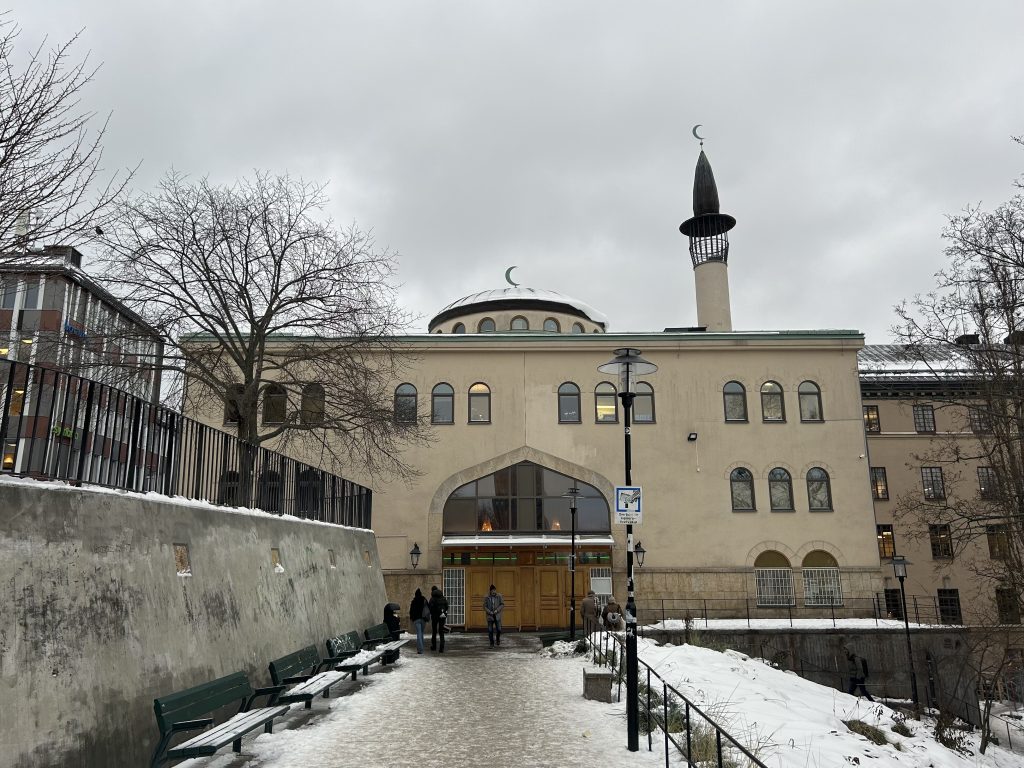
Central Mosque in Södermalm, Stockholm, December 2023. Photo credit: Liselotte Steen
*The names of these people are fictitious. The real names are known to the writer of this article.
